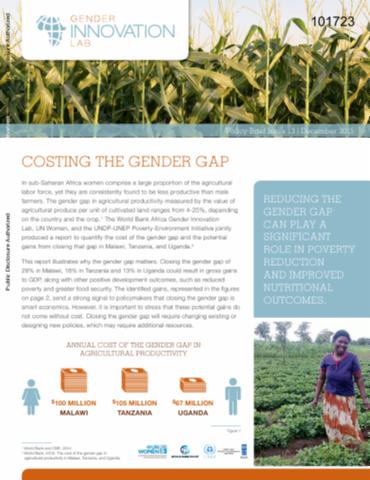Costing the Gender Gap
In sub-Saharan Africa women comprise a large proportion of the agricultural labor force, yet they are consistently found to be less productive than male farmers. The gender gap in agricultural productivity-measured by the value of agricultural produce per unit of cultivated land-ranges from 4-25 percent, depending on the country and the crop.1 The World Bank Africa Gender Innovation Lab, UN Women, and the UNDP-UNEP Poverty-Environment Initiative jointly produced a report to quantify the cost of the gender gap and the potential gains from closing that gap in Malawi, Tanzania, and Uganda.







